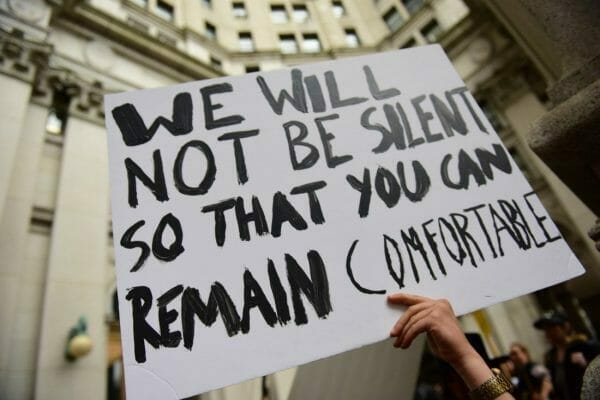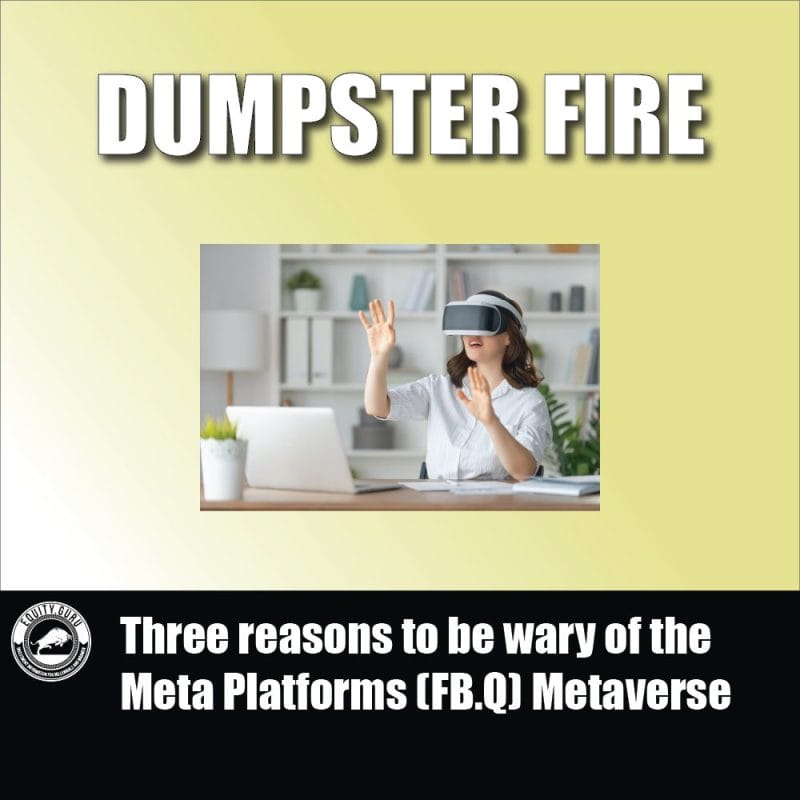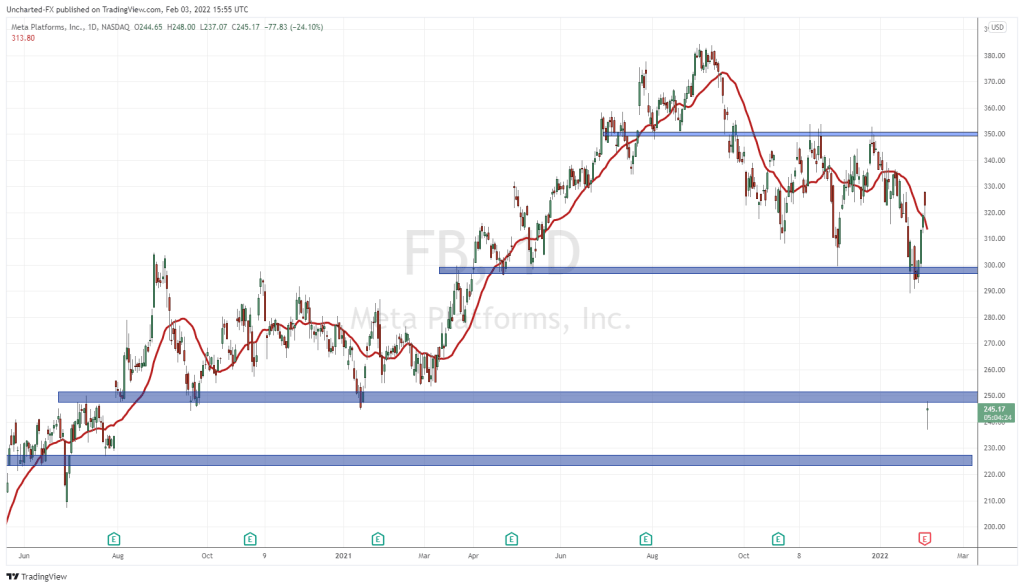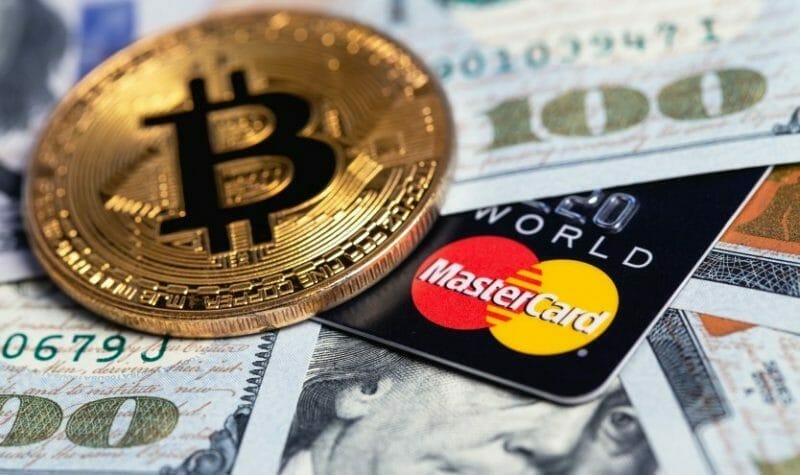Three of the most recognized leaders of the big tech movement, Mark Zuckerberg of Facebook (FB.Q), Jack Dorsey of Twitter (TWTR.Q) (and a few other companies) and Sundar Pichai of Alphabet (GOOG.Q) brought their dog and pony show to congress yet again this year.
Except this time instead of Mark Zuckerberg sweating in the hot seat trying to convince congress not to break up his company, he tried to hand over the reins to free speech on the internet to the government, while Jack Dorsey ran interference and Pichai mostly defended himself and his company against insinuations that Google algorithms are prejudicial against republican interests.
Here’s what the main argument was about—from Section 230 of the Communications Decency Act’s wikipedia page:
“At its core, Section 230(c)(1) provides immunity from liability for providers and users of an “interactive computer service” who publish information provided by third-party users:
No provider or user of an interactive computer service shall be treated as the publisher or speaker of any information provided by another information content provider.The statute in Section 230(c)(2) further provides “Good Samaritan” protection from civil liability for operators of interactive computer services in the removal or moderation of third-party material they deem obscene or offensive, even of constitutionally protected speech, as long as it is done in good faith.”
It’s Zuckerberg’s contention that Section 230 doesn’t do enough to regulate online content and the government should step in and do his job for him. He wants to make social media companies liable as publishers for the content people post on their sites, and is willing to sit down with legislators and help forge the regulatory handcuffs that will limit free speech on the internet.
Let’s get something else out of the way.
By definition, censorship happens when any government body tells a private citizen what they can or cannot say on any platform.
There isn’t a country in the world—including the so-called cradle of democracy and free speech, the United States of America—that doesn’t have some variety of censorship in place. In the United States, the first amendment has limits. They’re not unreasonable. No crying fire in a crowded theatre comes to mind. In Canada, speech isn’t free. We have a “reasonable expectation” of free speech with bounded limits. Again these limits aren’t unreasonable but are definitely open to interpretation based on what political party’s presently in power, the whims of our supreme court and the amount of money it takes to get there. The limits include hate speech, defamation and “obscenity” whatever the hell that means nowadays.
When you go on Facebook or Twitter and get banned for saying something that’s against their terms of service, that’s not censorship. They’re private organizations and they have a right to police their content any which way they want.
Likewise, if you’re scheduled to speak at a public showing and pressure from militant groups convince the people hosting you to rescind your invitation, that’s also not censorship. If anything, it’s one of the purest forms of market based decision making. The company or institution in question has weighed the risks versus the rewards of having you there, and they’ve decided that the risks outweigh the rewards, and as such, your event has been cancelled. Totally not censorship. Censorship requires a governing body. It’s an abuse of power.
What Zuckerberg wants is for the government to impose actual censorship on the internet by tying his hands. He wants absolution from a job that he’s not capable of doing by being able to point at an external third party as the reason why he can’t protect free speech. He’s also overcompensating because his own past abuses of power have pissed off the people he’s now trying to appease.
Here’s how Zuckerberg is selling us all out:
“We stand ready to work with Congress on what regulation could look like in these areas. By updating the rules for the Internet, we can preserve what’s best about it – the freedom for people to express themselves and for entrepreneurs to build new things – while also protecting society from broader harms.”
Consider for a moment an international entity like Facebook being governed by rules fashioned by an American political system, pushing American values on its followers for all of its social media sites—of which it has many. Now consider the gradual downhill slide into tyranny and state-sponsored fascism that’s been endemic to American political discourse since 9/11. We’ll get into that more later.
Jack Dorsey has turned out to be Zuckerberg’s foil in this debate. It’s not much of a surprise. He’s on board with the notion of a completely decentralized twitter, which would absolve his company of any control over the content on his platform. He’s gotten into some hot water over it from the radical left, who out of some misguided utilitarian notion of defending the weakest among us, want to control what we can and cannot say. There are some issues with giving up complete control of content on social media as well, but that’s a subject for another article.
Jack Dorsey feels “eroding” the legislation would “collapse how we communicate on the Internet.”
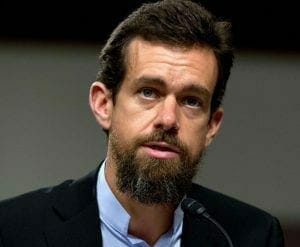
He’s not wrong.
He also states that Twitter will seek to earn trust from users by increasing transparency around their content moderation policies, and by introducing fair processes like an appeals method, which gives users more control over the algorithms controlling their experience. Not exactly decentralized and not exactly giving up all responsibility either. In all, a more balanced approach. Whether or not it’s implementable is up for debate, but it’s a better step than throwing your hands up and getting papa government to do it for you.
Sadly, changes to this variety of legislation wouldn’t stop the truly bad actors on the internet from spouting their bullshit anyway. The worst of the worst tend to skate on by right now, and would continue to skate under any new variety of legislation. Hate speech has a tendency to morph into new forms to avoid detection. No, this would hurt the common person who said the wrong thing at the wrong time and instead of laughing about “getting Zucked” after their 30 day facebook jail sentence lapsed, they may end up facing fines or maybe even actual jail time depending on the draconian nature of the present regime in power.
Lastly, but perhaps not least, is the erosion of trust. In totalitarian societies everyone fears everyone. Anyone could be an informant. Children are encouraged to tattle on their parents if they espouse anti-regime sentiment. Facebook has already started going down this road and people have started taking advantage of it by tattling on their peers for the slightest of infractions. Furthermore, the ineptitude of the facebook response team is legendary. You’re encouraged to report anything that goes against the ToS, and while right now it’s kind of funny and a little annoying, but if the government gets involved then in the future the stakes could theoretically involve job loss, jail terms and fines. It’s an entirely different story.
It’s also not like the United States government has proven they have any respect for the people they’re supposed to be governing. They don’t.
Edward Snowden laid it out in an interview on the Joe Rogan podcast earlier this year. The government panicked after 9/11 and dredged up the USA PATRIOT Act, which had been sitting on the back burner for years waiting for the appropriate changes in political climate to implement it, and that was the equivalent of the first hit of a particularly addictive drug which has caused the gradual erosion of the rights of the American people to this day, and laid the groundwork for a number of government excesses.
Here’s the interview with Snowden. If you have the time to spare, watch or listen to the whole thing, it’s worth it.
Now Zuckerberg wants to hand free speech to these control junkies on a silver platter.
Didn’t the United States fight a war to get away from this kind of thing?
—Joseph Morton

